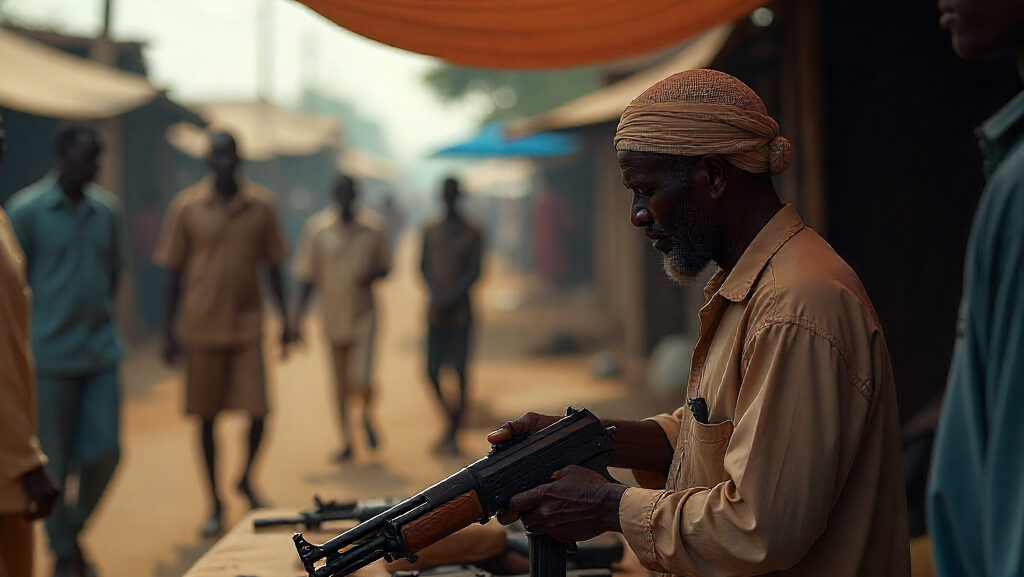Sudan: Control of Weapons and Slums
Asharq Al-Awsat, London, August 21
It will not be easy for the Sudanese people to forget the devastation of this war. It has scarred nearly every household, its destruction has reached into every aspect of life, and its effects will linger in memory and daily reality for years to come. The Sudan that emerges from this war will not resemble the Sudan that existed before it. From the bitterness of this experience will come painful lessons and inevitable changes, forcing a reckoning with problems that were once ignored, or at best, acknowledged with complaints but never met with real solutions.
Among the most urgent lessons is the need to end the phenomenon of militias, armed movements, and auxiliary armies, ensuring that no weapons exist outside the control of the regular armed forces and the authority of the state. It was precisely the previous chaos and the unchecked growth of the Rapid Support Forces that led Sudan to its current catastrophe. This is why the recent decision to place all allied and supporting forces fighting alongside the army under the provisions of the Armed Forces Law of 2007 is of vital importance. More than an organizational measure to enforce discipline on those who bear arms and to regulate their lawful use, this decision lays the groundwork for the next essential step: the integration of all armed groups and movements into a single, professional, national army subject to the control of the state, rather than the ambitions of groups, individuals, or private interests.
This move did not occur in isolation but was preceded by other measures, including the order to end the presence of all armed groups in central Khartoum and to relocate them to camps outside the capital. It also reaffirmed that individuals may not carry weapons or circulate with them in civilian areas—be they residential neighborhoods, markets, or other public spaces. These measures are part of a broader effort to restore security, pave the way for displaced families to return to their homes, and bring life back to the capital, where intense efforts are underway to clear war debris, rehabilitate vital service facilities, repair essential infrastructure—especially electricity and water—and reopen the airport within weeks. In parallel, authorities issued decisions on two issues that the war cast into sharp relief: informal settlements and the unregulated foreign presence. Though long a source of debate and worry, the conflict magnified these challenges and thrust them into urgent public view.
This holiday season, give to:
Truth and understanding
The Media Line's intrepid correspondents are in Israel, Gaza, Lebanon, Syria and Pakistan providing first-person reporting.
They all said they cover it.
We see it.
We report with just one agenda: the truth.


Many of the looting incidents targeting the homes of displaced citizens, as well as the pillaging of markets and factories, were committed by residents of informal settlements—crimes documented in widely circulated videos. A large number of armed robbery gangs apprehended by security forces came from these areas. More alarming still, some residents of these slums joined the ranks of the Rapid Support Forces, participating in atrocities in Khartoum, Wad Madani, and elsewhere.
Of course, it would be wrong and unfair to generalize; not all slum dwellers are complicit in such crimes. Yet this does not justify ignoring the problem of illegal informal housing or allowing the encroachment on state lands and properties owned by citizens, many of whom are left to confront, alone, those who seize their rightful lands and homes. Every country has the sovereign right—and the obligation—to address the problem of informal settlements, which have always posed security risks by violating land laws and fostering instability. Sudan can no longer afford to avoid dealing with this reality, just as it can no longer ignore the peril of illegal foreign presence, whose unchecked growth has reached alarming levels and poses a serious security threat.
The authorities have begun to tackle these thorny challenges, and they should be commended for doing so, because postponement only compounds the problems. Resistance from some quarters is inevitable, but corrective action is overdue and indispensable if Sudan is to confront the war’s consequences and draw lessons that can prevent future tragedies.
In this context, the position taken by certain leaders of the Justice and Equality Movement (Gibril Ibrahim’s faction) and the Sudan Liberation Movement (Minni Arko Minnawi’s faction), who oppose subjecting all allied armed factions to the Armed Forces Law, is both puzzling and shortsighted. Their argument—that their forces remain under the Juba Peace Agreement and cannot be brought under military law until the integration and demobilization provisions of the security arrangements are implemented—suggests deliberate stalling and selective interpretation of the accord.
Their intent, it seems, is to preserve their military leverage. But they too must absorb the war’s most glaring lesson: that the proliferation of weapons and the chaos it produces carry an unbearable cost for everyone—fighters and civilians alike. If Sudan is to achieve stability, this cycle of violence must not, and cannot, be allowed to repeat itself.
Osman Mirghani (translated by Asaf Zilberfarb)

